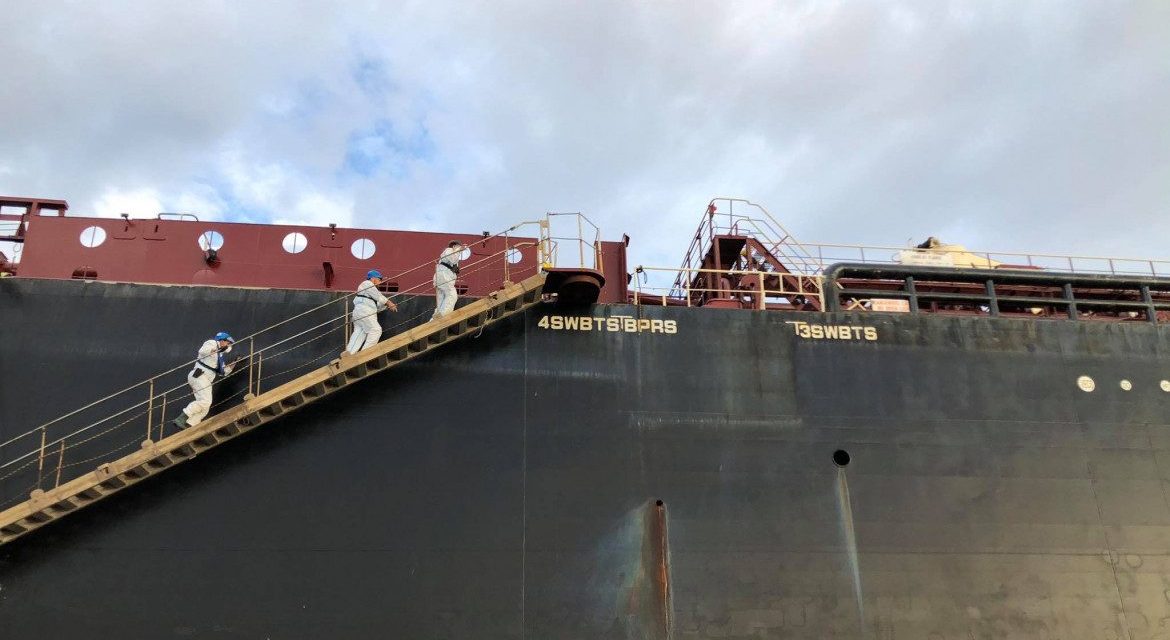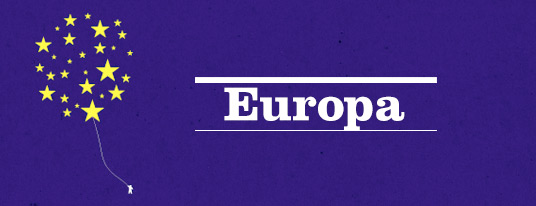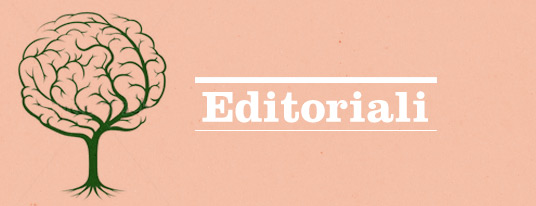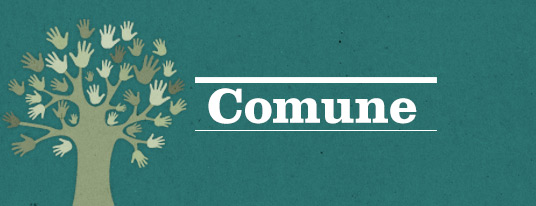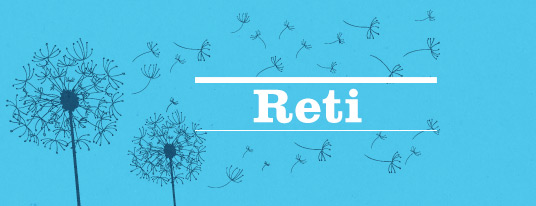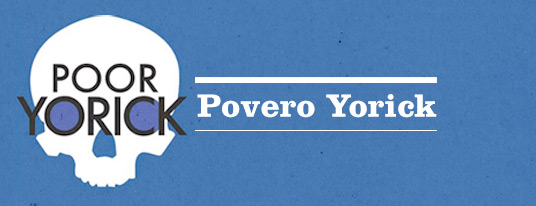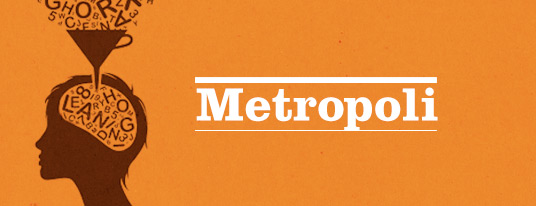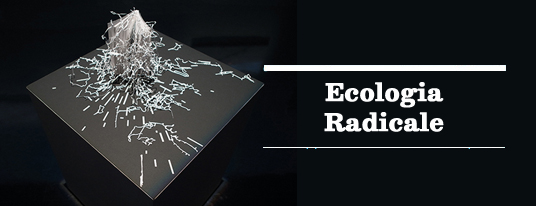Di SANDRO MEZZADRA
C’è la tendenza, da parte dei media e del sistema politico, a trattare quanto avviene nel Mediterraneo, e più in generale la questione delle migrazioni, come un tema a sé, di solito rubricandolo come un’emergenza (securitaria o umanitaria, poco cambia rispetto alla logica del discorso). A nessuno viene in mente, ad esempio, di collegare questo tema con il “recovery fund”, di cui si discute con tutt’altro linguaggio e tono.
A me pare, tuttavia, che questo atteggiamento sia profondamente fuorviante. Se il “recovery fund” segna un salto di qualità nel processo di integrazione europea (in direzioni che rimangono tutte da indagare, naturalmente), nel Mediterraneo si giocano partite essenziali per la definizione dei confini di quell’Europa che si intende riqualificare – e dunque sia per la qualità della sua cittadinanza sia per i suoi rapporti con l’esterno, in primo luogo con i Paesi della sponda sud, con il grande Medio Oriente e con la stessa Africa subsahariana nel suo complesso.
La vergogna del campo di Moria e quella dei campi di detenzione in Libia sono i vertici maggiormente visibili di un regime di controllo del confine marittimo che è a tutti gli effetti un regime europeo (senza, sia chiaro, che questo esoneri dalle loro responsabilità i singoli governi nazionali, a partire da quello italiano).
Ma certo, quello che è accaduto alla petroliera Etienne, di proprietà del colosso danese Maersk, è un altro tassello emblematico dell’intreccio di responsabilità nazionali ed europee in un mare che è da tempo attraversato dal confine più letale al mondo. Indifferenza, cinismo, spregio per l’elementare dovere di salvare vite in mare, corpi lasciati per settimane in disfacimento, senza alcuna assistenza: è questa l’Europa che intende riqualificarsi con il “recovery fund” dopo lo shock della pandemia? Sembrerebbe di sì, tanto più se teniamo presente che ad agire nel Mediterraneo non sono oggi i «sovranisti», ma governi come quello italiano e la Commissione di Ursula von der Leyen.
Da questo punto di vista, acquisisce un significato particolarmente importante l’intervento di venerdì della nave Mare Jonio, della piattaforma Mediterranea. Molto semplicemente, i volontari di Mediterranea hanno fatto quello che avrebbero dovuto fare le autorità maltesi ed europee: sono saliti a bordo, hanno prestato una prima assistenza medica ai ventisette profughi e migranti soccorsi dalla nave danese e hanno immediatamente constatato una situazione insostenibile. Di qui la decisione di trasferire i ventisette sulla Mare Jonio.
Ma non può sfuggire, più in generale, che l’intervento di Mediterranea ha prefigurato una diversa modalità di gestire il confine marittimo nel Mediterraneo, aprendo dal basso un «corridoio umanitario» e alludendo potentemente alla costruzione di un’altra Europa attraverso l’attivismo in mare e sui confini.
Questo attivismo si è del resto consolidato negli ultimi mesi e si è al tempo stesso almeno parzialmente trasformato. La costruzione di una vera e propria «flotta civile», che ha in Alarm Phone il suo centro di coordinamento per i soccorsi (verso la costruzione di un vero «civil MRCC» – Marittime Rescue Coordination Centre), ha determinato un approfondimento della dimensione immediatamente europea delle operazioni in mare, mentre in particolare in Germania – lo raccontava venerdì Sebastiano Canetta su queste pagine – è cresciuto un movimento che accompagna quelle operazioni in terra, coinvolgendo attori profondamente eterogenei (dalle Chiese ai Comuni come quello di Berlino e ad alcuni Länder).
In gioco è sempre più chiaramente oggi, per l’attivismo in mare, la lotta per un’Europa diversa da quella della vergogna di Moria, della Libia e della Etienne, a partire da una nuova maniera di raccontare le migrazioni e di collegarle alle mobilitazioni sociali che si stanno producendo nel contesto della pandemia. Anche per via della grande impressione determinata dalle iniziative di Black Lives Matter negli Usa, che stanno cambiando anche in Europa la grammatica dell’antirazzismo, i linguaggi tradizionali dell’umanitarismo sono spiazzati o comunque largamente modificati. Il riconoscimento del protagonismo e delle lotte di profughi e migranti, anche in condizioni durissime come quelle dell’attraversamento del confine marittimo nel Mediterraneo, è in particolare sempre più un tratto che caratterizza l’attivismo in mare.
La maturità della cooperazione tra diversi attori all’interno della «flotta civile» costituisce uno straordinario esempio di azione sul terreno immediatamente europeo che altri movimenti potrebbero riprendere e sviluppare. Le risonanze tra l’attivismo nel Mediterraneo e le mobilitazioni negli Stati Uniti sono un ulteriore aspetto che varrebbe senz’altro la pena di approfondire.
Più in generale, l’attivismo in mare ci propone oggi in termini parzialmente nuovi l’attualità di una politica radicale dei confini e della migrazione senza la quale è davvero difficile riprendere la riflessione e l’iniziativa sulla questione europea. Mediterranea, con l’operazione di venerdì, ha dato una buona esemplificazione di questa politica radicale, a partire dalla necessità elementare di prestare assistenza a ventisette profughi e migranti abbandonati dall’Europa.
Questo articolo è stato pubblicato su il manifesto il 13 settembre 2020.
Recovery Humans. Maersk Etienne, Mediterranea and Europe
The media and the political system tend to treat what happens in the Mediterranean, and more generally the migration issue, as a specific and distinct topic. It is usually classified as an emergency (whether it be a security issue or as a humanitarian one, it doesn’t really change with respect to the logic of the argument). Nobody thinks, for example, to connect this matter to the “recovery fund”- a topic that is discussed in a completely different language and tone. In my opinion, however, this attitude is profoundly misleading. If the “recovery fund” marks a breakthrough in the process of European integration (the ramifications of which are still being explored, of course), essential games are being played in the Mediterranean for the definition of the borders of a Europe that is intended to be upgraded – and therefore both for the quality of its citizenship and for its relations with the outside world, first of all with the countries on the southern shore, with the great Middle East and with Sub-Saharan Africa as a whole.
The shame of the Moria camp and of the detention camps in Libya are the most visible peaks of a maritime border control regime that is to all intents and purposes a European one (let it be clear, this does not absolve them of their responsibilities: individual, national governments, starting with the Italian one). What happened to the tanker Etienne, owned by the Danish giant Maersk, is another emblematic piece of the intertwining of national and European responsibilities in a sea that has long since been traveled as the world’s deadliest border. Indifference, cynicism, disregard for the basic duty to save lives at sea, bodies left decomposing for weeks, without any assistance: is this the Europe that intends to re-qualify itself by means of the “recovery fund” after the shock of the pandemic? It would seem so- all the more if we bear in mind that those who are acting in the Mediterranean today are not the “sovereignists”, but governments like the Italian one and Ursula von der Leyen’s Commission.
From this point of view, the operation carried out on Friday by Mare Jonio, the ship of the platform Mediterranea, acquires a particularly important meaning. The Mediterranea volunteers simply did what the Maltese and European authorities should have done: they got on board, provided initial medical assistance to the twenty-seven refugees and migrants rescued by the Danish ship and immediately noticed an unsustainable situation. Hence the decision to transfer the twenty-seven to the Mare Jonio. But, it cannot be ignored, more generally, that Mediterranea’s intervention has modeled a different way of managing the maritime border in the Mediterranean, opening a “humanitarian corridor” from below and powerfully alluding to the construction of another Europe through activism at sea and on the borders.
This kind of activism has been consolidating in the last months and at the same time it has been at least partially transformed. The construction of a real “civil fleet”, with Alarm Phone as its rescue coordination centre (towards the construction of a real “civil MRCC”), has led to a deepening of the immediately European dimension of operations at sea, while in Germany in particular – as Sebastiano Canetta wrote here on Friday – a movement that accompanies those operations on land has been growing, with the involvement of deeply heterogeneous actors (from Churches to Municipalities such as Berlin and some Länder). What is at stake today is more and more clearly, for activism at sea, the struggle for a Europe other than the shame of Moria, Libya and Etienne, beginning with a new way of narrating migrations and linking them to the social mobilizations that are taking place in the context of the pandemic. Also because of the great impression created by the Black Lives Matter’s initiatives in the USA, which are also changing the grammar of antiracism in Europe, the traditional languages of humanitarianism are being displaced or in any case largely changed. The recognition of the centrality of refugees and migrants and of their struggles, even in very harsh conditions such as the crossing of the maritime border in the Mediterranean Sea, is in particular increasingly a feature of activism at sea.
The high level of cooperation between different actors within the ”civil fleet” is an extraordinary example of action on the immediate European scene that other movements could resume and develop. The resonance between activism in the Mediterranean and the mobilizations in the United States is another aspect that would certainly be worth exploring. More generally, activism at sea today offers us, in partially new terms, the relevance of a radical border and migration policy without which it is very difficult to resume reflection and initiative on the European issue. Mediterranea, with the operation on Friday, gave a good example of this radical policy, starting from the elementary need to help twenty-seven refugees and migrants abandoned by Europe.
https://mediterranearescue.org/en/news-en/recovery-maersk-mediterranea-europe/

